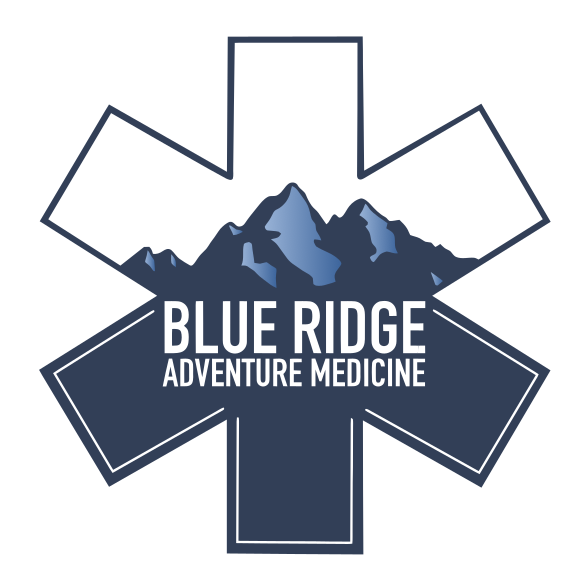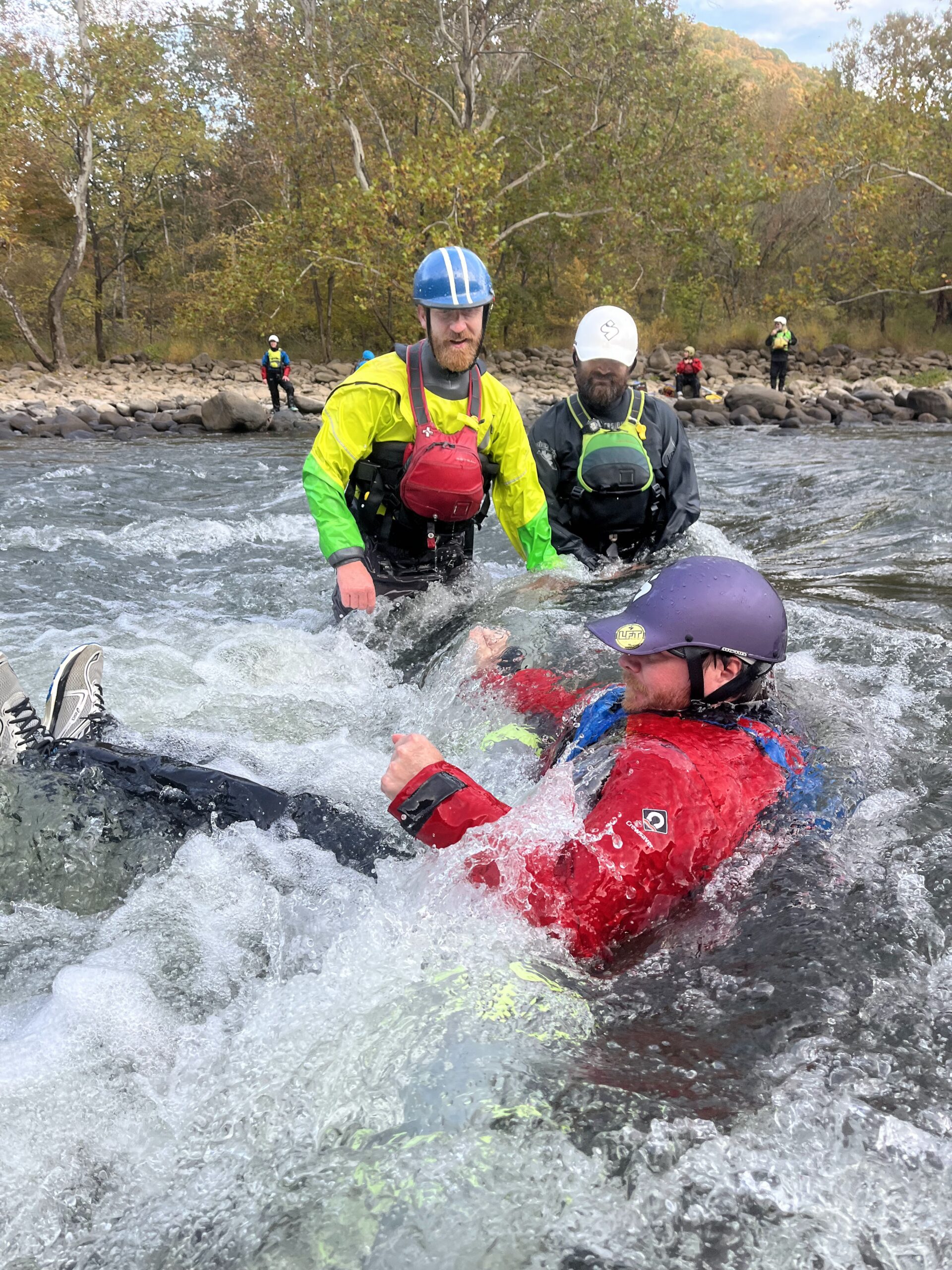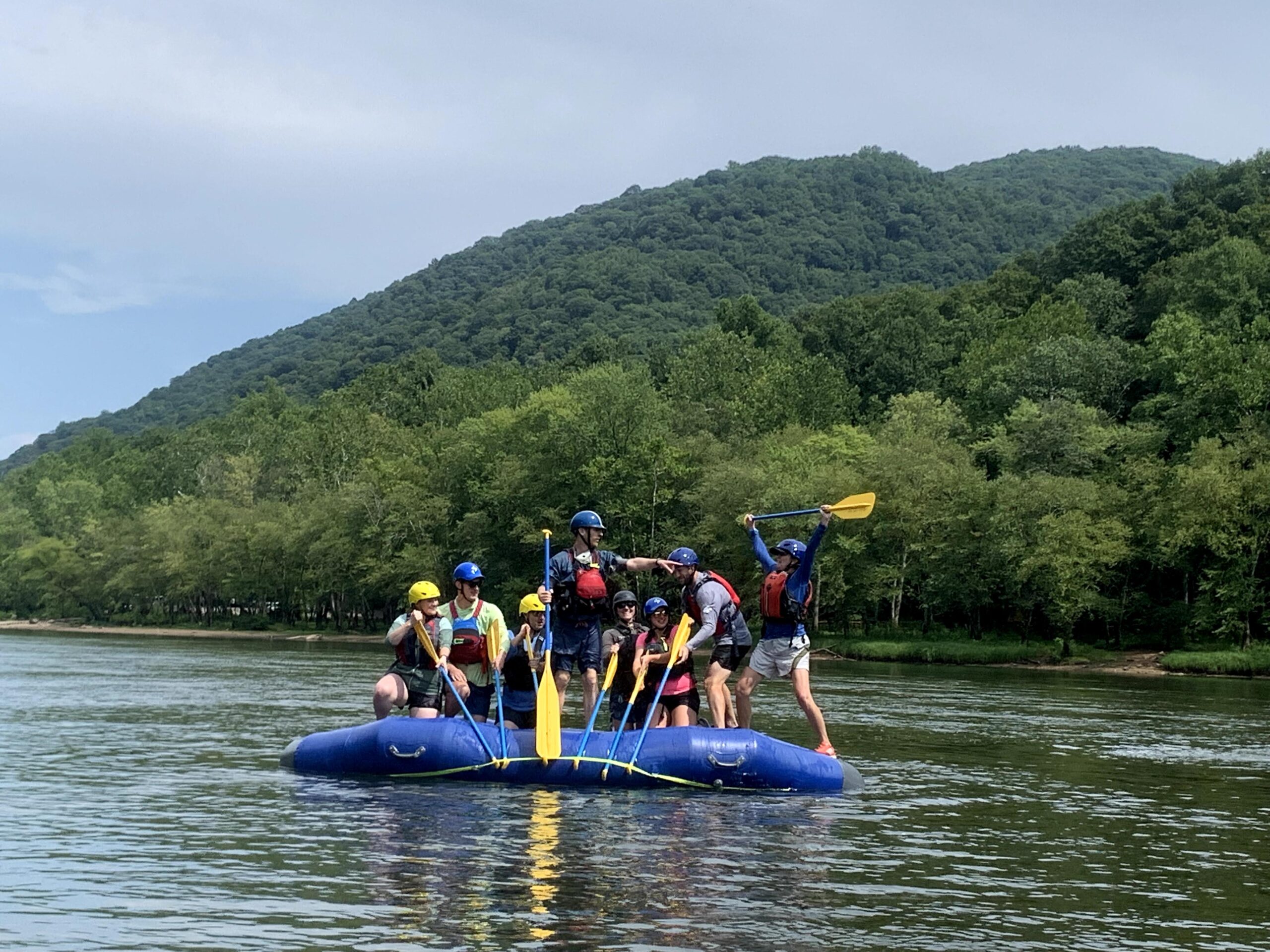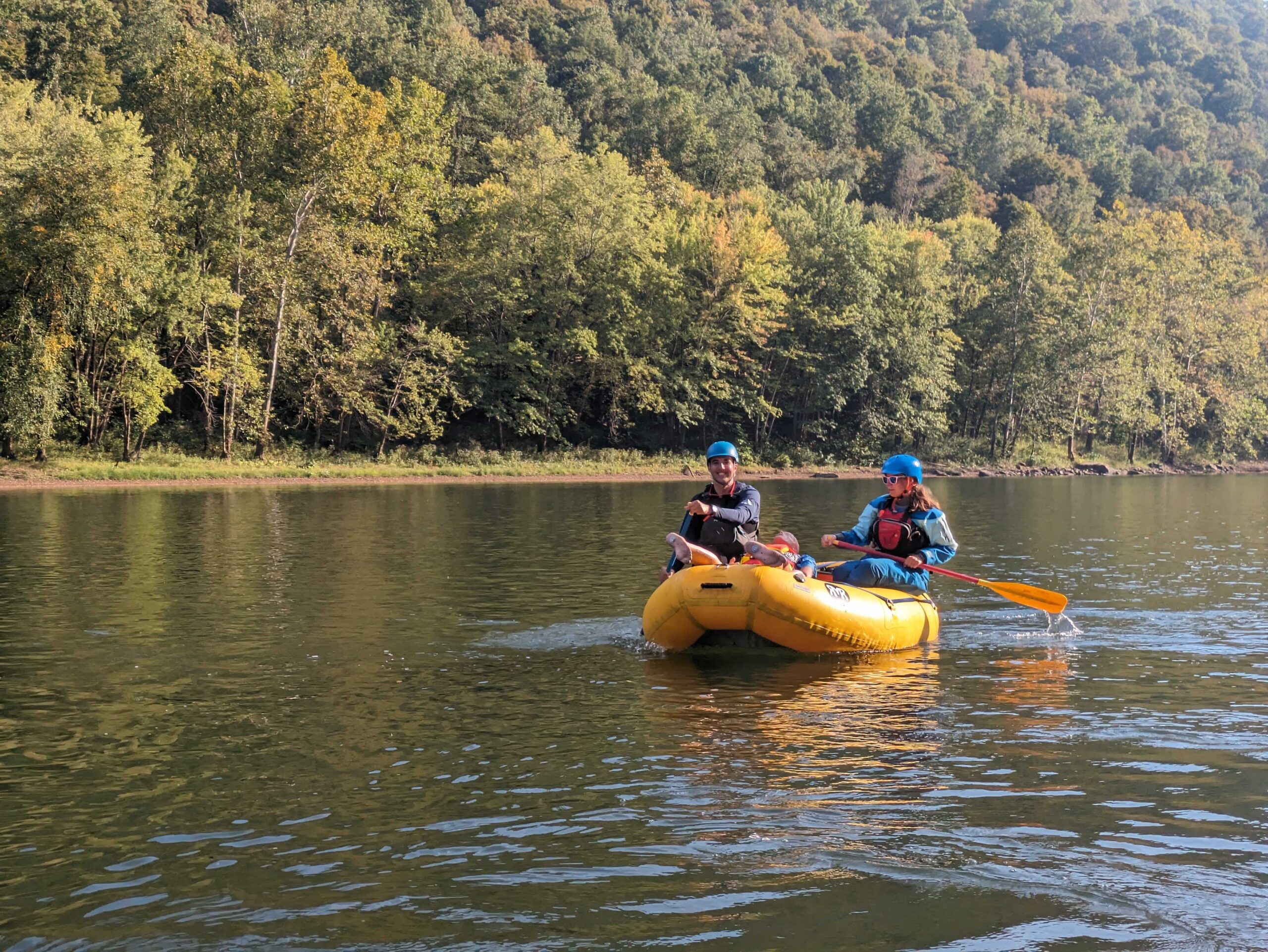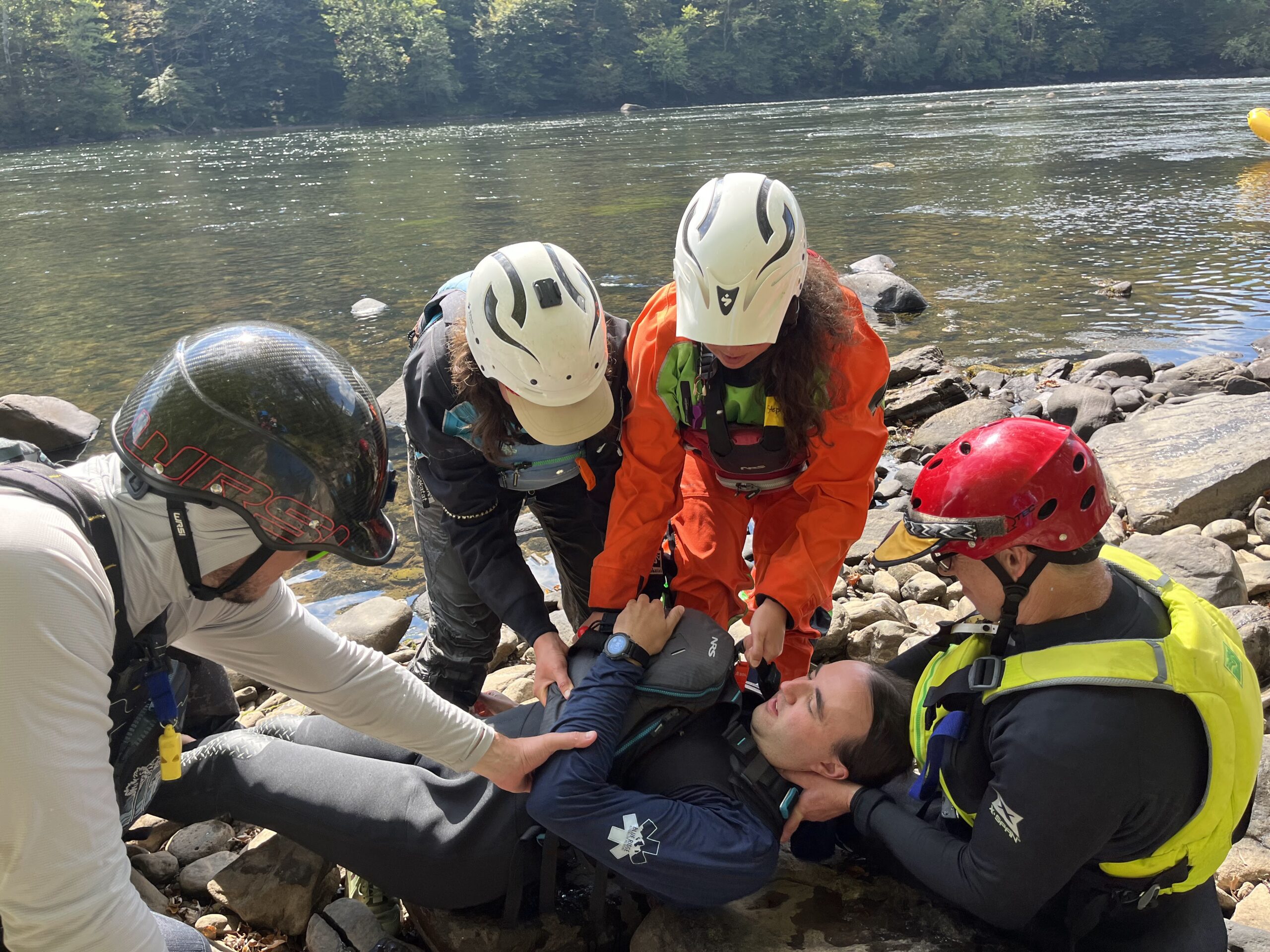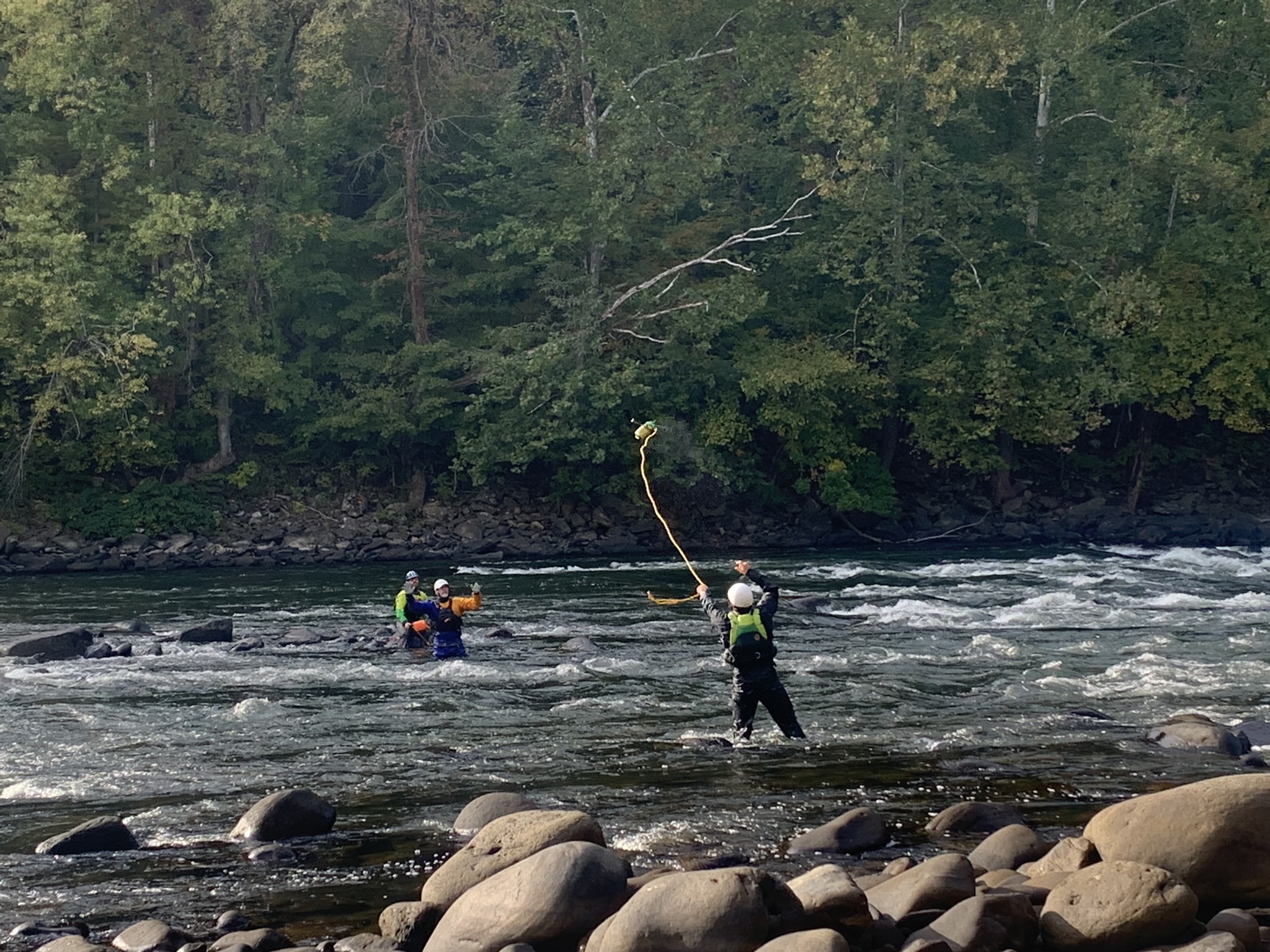Course Overview: The Swiftwater Rescue workshop teaches recognition and avoidance of common river hazards,
execution of self-rescue techniques, and rescue techniques for paddlers in distress. Emphasis is placed both on personal
safety and on simple, commonly used skills. Fundamental and more advanced techniques for dealing with hazards that
carry greater risks for both victim and rescuer, such as strainers, rescue vest applications, entrapments, and pins, also are
practiced. Scenarios will provide an opportunity for participants to practice their skills both individually and within a
team/group context.
Course Objectives:
• Promote proactive prevention of river accidents and injuries.
• Develop and practice key self-rescue skills.
• Identify and avoid river hazards by understanding hydrology, hazards, and river features.
• Focus on fast, low-risk strategies for early management of river accidents
• Develop and practice methods for recovering swimmers, and loose boats and equipment
• Develop and practice more advanced rope-based and in-water skills
• Gain experience using the rescue PFD, and understand its strengths and weaknesses
• Utilize rescue scene management principles needed within a paddling group
Gear List:
All items are required unless otherwise noted
1-Sierra Rescue River Rescue and Safety Workbook (we will have those for you on site)
1-Helmet designed/certified for river paddling use
1-Rescue Life Jacket with tether and locking carabiner
1-Sturdy Footwear – River Sandals or Crocs are NOT acceptable. (old gym shoes are
fine)
1-Whitewater paddle craft Rigged for Whitewater use (BRAM will provide)
1-Paddle (provided by BRAM)
1- Throw rope (preferably at least 5/16” diameter) (Bring if you have, BRAM has extras)
4- Locking Carabiners (minimum) (Bring if you have, BRAM has extras)
2- PMP type pullies (Bring if you have, BRAM has extras)
2 – 1.3 meter lengths of 5 or 6mm climbing grade accessory cord (Bring if you have,
BRAM has extras)
1- 20’ length of climbing grade 1” tubular webbing (Bring if you have, BRAM has
extras)
1-Long wet suit or drysuit for thermal and abrasion protection. No bare legs are
acceptable on any river-based activities (Can rent dry suit from BRAM for $75)
1-River knife This is an absolute. Any knife you can safely secure to or in your
life jacket is fine, but you will be required to carry a knife. One that folds and fits in a
life jacket pocket is acceptable.
1-Whistle attached to life jacket
1-River first aid kit (and any medications that you may need while on the river, as we
may be far from outside assistance a lot of the time)
1-Folding Camp Chair for outdoor classroom work
2-Water bottles one-liter size minimum, that can be attached to a fixed point in a raft. No
non-locking attachment links for these bottles.
1-Some form of drybag or drybox for your daily lunches/first aid kit/sunscreen etc.
Snacks for while on the river (there will be some very long days, everyone must bring
snacks that they will eat)
Gloves (optional)
Glasses strap- The water will take your glasses. Really.
Sunglasses- Protect those eyes!
Sun screen
Bug spray
Notebook and pens
Rain gear/warm clothes (we will be working outdoors regardless of weather)
